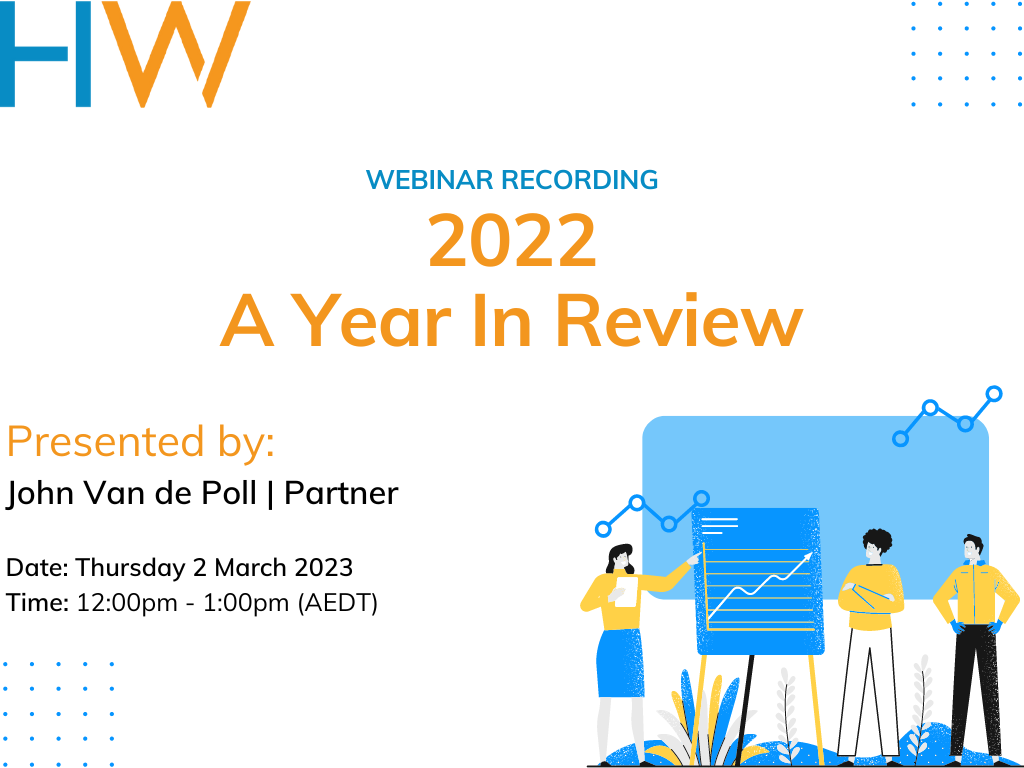Holman Webb Lawyers is proud to announce eight promotions across three offices, effective 1 July 2023.
- WHAT WE DO
- Banking & Finance
- Business, Corporate & Commercial
- Commercial Recovery
- Dispute Resolution
- Food Law
- Foreign Investment & Migration
- Franchising & Retail
- Government
- Health Aged Care & Life Sciences
- Insolvency and Restructuring
- Insurance
- Intellectual Property Protection
- Wills & Estate Planning
- Property
- Technology Law
- Third Sector: NFP & Social Enterprise
- Workplace Relations







![Bulk Notifications – Precautionary Notifications - Notification of a problem: When is a notification sufficient for the purpose of S.40? A look at Uniting Church in Australia Property Trust (NSW) v Allianz Australia Insurance Limited [2023] FCA 190](/upload/holman-webb-lawyers/shutterstock1939014961knox.jpg)


![The Oft-Forgotten “Harman” Undertaking: A Case Note on NSW Mobile Fleet Services Pty Limited v Max Mobile & Detailing Pty Limited [2023] NSWSC 140](/upload/holman-webb-lawyers/shutterstock1926210260-supreme-court-of-nsw.jpg)
